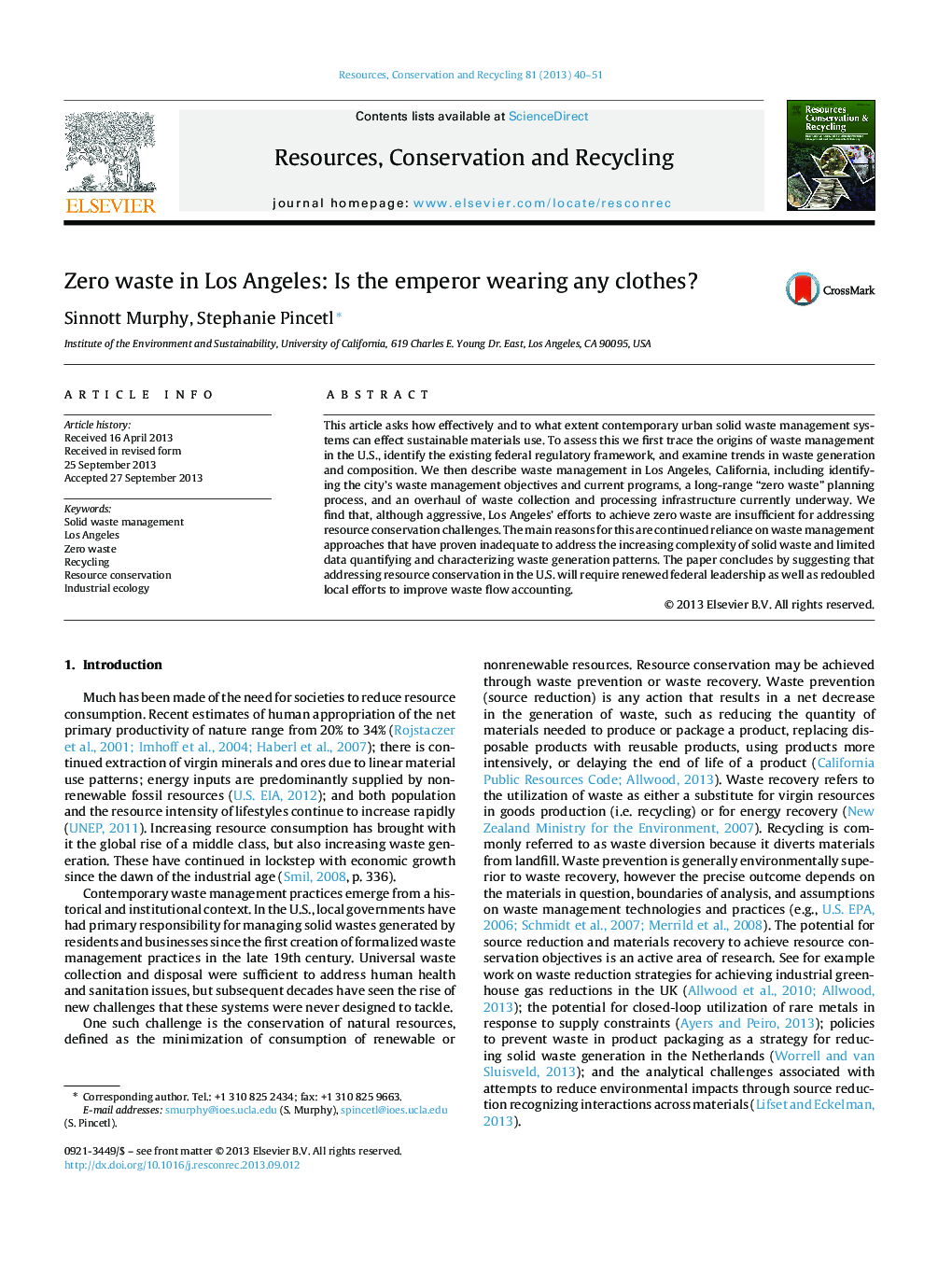| Article ID | Journal | Published Year | Pages | File Type |
|---|---|---|---|---|
| 1063112 | Resources, Conservation and Recycling | 2013 | 12 Pages |
•Existing waste management systems are challenged to achieve environmental imperatives.•Cities are seeking to reduce waste disposal to achieve a range of objectives.•Cities have little leverage to reduce waste generation.•Severe data limitations prevent meaningful analysis of waste flows.
This article asks how effectively and to what extent contemporary urban solid waste management systems can effect sustainable materials use. To assess this we first trace the origins of waste management in the U.S., identify the existing federal regulatory framework, and examine trends in waste generation and composition. We then describe waste management in Los Angeles, California, including identifying the city's waste management objectives and current programs, a long-range “zero waste” planning process, and an overhaul of waste collection and processing infrastructure currently underway. We find that, although aggressive, Los Angeles’ efforts to achieve zero waste are insufficient for addressing resource conservation challenges. The main reasons for this are continued reliance on waste management approaches that have proven inadequate to address the increasing complexity of solid waste and limited data quantifying and characterizing waste generation patterns. The paper concludes by suggesting that addressing resource conservation in the U.S. will require renewed federal leadership as well as redoubled local efforts to improve waste flow accounting.
